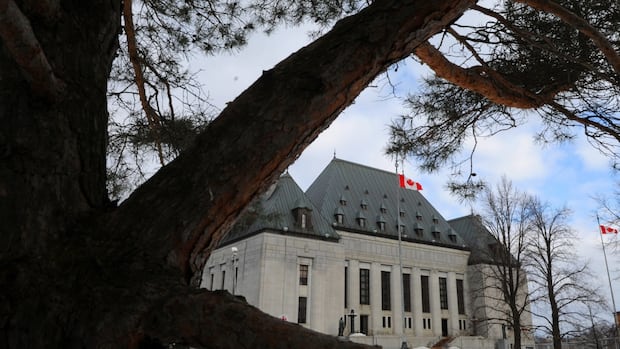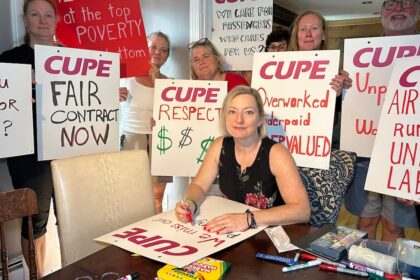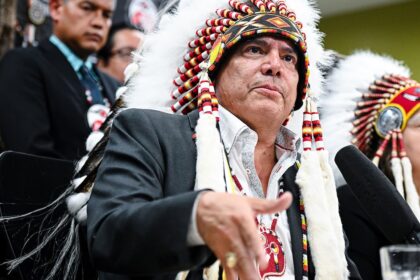Last month, after the federal government filed its factum with the Supreme Court in the case of English Montreal School Board v. Attorney General of Quebec, Justice Minister Sean Fraser stood accused by a Bloc Québécois MP of wanting to rewrite the Constitution.”On the contrary, we do not want to change the Constitution,” Fraser said. “We want to give the Supreme Court the opportunity to clarify the Constitution.”At the very least, the Supreme Court now has the opportunity to clarify how much, if at all, it wishes to be involved in a renewed and high-stakes debate about the notwithstanding clause — or whether the other actors in our democratic system are going to have to take responsibility for checking use of the clause.The case involves a challenge to Quebec’s Bill 21, for which the provincial legislature has invoked the notwithstanding clause, one example on an increasingly long list of elected officials reaching in recent years for the escape hatch built into the Charter of Rights and Freedoms. The Alberta government is reportedly preparing to make new use of the clause this fall.Going back to 2022, Justin Trudeau’s Liberal government had vowed to formally get involved if or when a challenge to Bill 21 reached the Supreme Court, a commitment that his successor, Mark Carney, adopted in January. So the mere fact that the federal government made a submission to the Supreme Court was not a surprise.WATCH | Manitoba’s submission to the Supreme Court case: Manitoba files intervention in Quebec’s Bill 21 Supreme Court battleThe federal government and more than one province will weigh in on Quebec’s use of the notwithstanding clause to impose its controversial secularism law. Manitoba Premier Wab Kinew wants the courts to weigh in on the constitutionality, despite the use.But depending on your choice of commentator, the arguments advanced by the federal government are either surprisingly timid or recklessly aggressive, provocative or a cop-out. The Bloc Québécois put a motion before the House of Commons that called on the federal government to withdraw its factum entirely. (The Conservatives, stepping lightly around the substance of the issue, argued the Liberals were manufacturing a national unity crisis to distract Canadians from an economic crisis.)While successive Liberal justice ministers suggested they would take particular issue with the “pre-emptive” use of the notwithstanding clause — that is, a legislature invoking the clause before a court has ruled on whether a law violates the Charter — the federal submission does not attack the clause from that angle. It is also silent on the actual text of Bill 21, which prohibits some public servants from wearing religious symbols.But the federal government does advance two potentially significant arguments about the notwithstanding clause.Is there a limit to the clause?The first is apparently a novel one. Starting from the premise that the impact of the clause is supposed to be temporary — as written into the Charter, each use of the clause is only in effect for five years — the federal government argues that it should not result in the “irreparable impairment” of a Charter right. If a right was irreparably impaired, the government suggests, a legislature’s use of the notwithstanding clause might amount to an illegitimate amendment to the Constitution.To draw out this argument, the federal lawyers float a few hypothetical scenarios. What if, for instance, a law authorizing unreasonable searches and seizures was repeatedly renewed? What if places of worship were declared illegal for a prolonged period of time? What if the notwithstanding clause was used to allow for arbitrary executions or slavery?While the federal government was careful to note that it does not mean to suggest, “in any way, that the impugned provisions in this case coincide with such scenarios,” the Bloc nonetheless leapt at such hypotheticals to suggest the federal government was casting aspersions on Quebec.WATCH | Alberta expected to use notwithstanding clause: Alberta looks to use notwithstanding clause on 3 transgender lawsThe Alberta government is looking to use the notwithstanding clause to amend three laws introduced last year that affect transgender youth, according to a leaked government memo. The move is drawing criticism from 2SLGBTQ+ advocates.The federal factum might raise interesting questions for Canadians to consider, but it remains to be seen how willing the Supreme Court is to entertain the hypothetical outer limits of the notwithstanding clause.”One of the concerns I think people have with this [argument] is it invites litigation on every use of the notwithstanding clause,” says Dwight Newman, a law professor at the University of Saskatchewan.Can a court still pass judgment?The federal government’s second argument is perhaps a bit more straightforward. Building on a conversation that has percolated in legal circles, federal lawyers argue the notwithstanding clause does not completely shield a law from judicial review — specifically, they suggest, a court can still scrutinize the law in question and declare whether it is inconsistent with a Charter right, even while leaving the law in place.Such a declaration, the federal government suggests, would be in the “public interest,” both guiding legislators and providing an “important source of information for the electorate.”This idea has split the provinces who are intervening in the Bill 21 case.Manitoba and British Columbia — two provinces led by NDP governments — offer at least some agreement with the federal view. Judicial commentary, Manitoba writes, “can serve the valuable function of providing voters with reliable and impartial information about the effect of the legislation in question.” A declaration, British Columbia argues, might clarify the significance of the override to Charter rights and facilitate “democratic accountability.” WATCH | Poilievre’s plan to use clause federally for the first time: Why is Poilievre’s pledge to invoke notwithstanding clause significant? | Hanomansing TonightConservative Leader Pierre Poilievre says he’ll use notwithstanding clause to ensure multiple-murderers die in prison. Peter Sankoff, lead council at Sankoff Criminal Law, weighs in.Alberta, Ontario and Saskatchewan, along with Quebec — four provinces led by conservative governments — argue that allowing for judicial review would contradict the very purpose of the notwithstanding clause and risk politicizing the judiciary.Judicial declarations on the use of the clause would “amount to a power to contradict what is intended to be an authoritative determination by the legislature,” Alberta writes, while “a court proceeding on this basis would effectively become an interest group vying for the attention of voters in a political forum.””The role of the judiciary is not to facilitate public debate by hypothesizing on the outcome of a legal challenge as if part of the Constitution did not exist,” Ontario argues. Is it up to legislatures?Forty-three years ago, Roy McMurtry, who took part in the discussions that led to the Charter of Rights and Freedoms as justice minister in Ontario, wrote that “political accountability” was “the best safeguard against any improper use” of the notwithstanding clause. And the arguments now made for judicial review essentially posit that, while they might not be able to strike down a law passed under the notwithstanding clause, the courts could contribute to that political accountability. But the Supreme Court could decide that is not the justice system’s place or role.Whatever is clarified when the Bill 21 case is heard, governments or legislators who fear the abuse of the notwithstanding clause might have to ask themselves what more they — not the courts — can do to reinforce the system of political accountability.There is, for instance, a bill currently before the Senate that would create new rules for how Parliament might use the notwithstanding clause (it has never been invoked federally, though Conservative Leader Pierre Poilievre has vowed to use it if he forms government). Bill S-218, proposed by Sen. Peter Harder, would amend the Constitution Act to prevent pre-emptive use of the clause, ban governments from shortening debate on legislation that uses the clause and require a super majority vote in the House of Commons — 66 per cent of MPs and members from at least two recognized parties — for passage of an affected bill.Harder takes some of his inspiration from suggestions made in 1998 by former Alberta premier Peter Lougheed, one of the Charter’s signatories and a proponent of the notwithstanding clause. Lougheed proposed a vote threshold of 60 per cent.”Let’s remove the shortcuts, slow down the process and ensure that Canadians know what’s at stake before there’s a federal abuse of Section 33,” Harder said in a speech to the Senate in June.S-218, introduced in May, is still at second reading in the upper chamber. And even if it were to pass Parliament, a future government could seek to amend or repeal it — it would be less binding than a Supreme Court ruling.But whatever the Supreme Court eventually decides, the burden for confronting the notwithstanding clause might fall on legislatures themselves.
What is the Supreme Court going to say about the notwithstanding clause?











